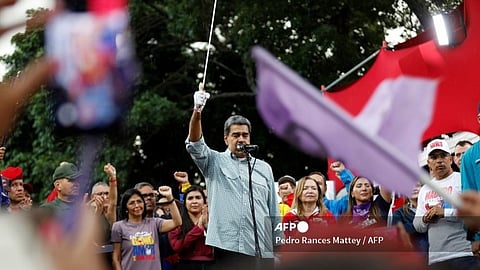
- NEWS
- the EDIT
- COMMENTARY
- BUSINESS
- LIFE
- SHOW
- ACTION
- GLOBAL GOALS
- SNAPS
- DYARYO TIRADA
- MORE

The European Union has rejected the "democratic legitimacy" of Venezuelan President Nicolás Maduro’s re-election last month, with EU foreign policy chief Josep Borrell stating that the election results are unverifiable. The EU will maintain diplomatic relations with Maduro’s Venezuela, similar to its approach with other non-democratic regimes like Nicaragua. This decision comes after Maduro was declared the winner of the 28 July election, a result heavily contested by the opposition.
The opposition, led by candidate Edmundo González Urrutia, claims that Maduro's re-election was fraudulent. González Urrutia, who replaced María Corina Machado on the ballot after she was barred from running, is reported missing and has been targeted by Maduro’s regime. Meanwhile, Machado, in hiding due to threats, led a rally in Caracas to denounce the election results, vowing to fight until the alleged fraud is acknowledged and corrected.
The National Electoral Council (CNE) has refused to release voting data, citing a computer hack, although observers question this explanation. Protests following the election have resulted in significant unrest, with over 2,400 arrests and at least 25 deaths. The opposition continues to mobilize, calling for international support and transparency from the CNE.
Amidst the turmoil, Maduro has reshuffled his cabinet, appointing key allies to crucial positions. Human rights organizations and international bodies, including the Inter-American Commission on Human Rights, have condemned the repression and political persecution in Venezuela. As the crisis persists, both domestic and international reactions indicate that the political struggle in Venezuela is ongoing and deeply impactful.
(Source: Agence France-Presse)
